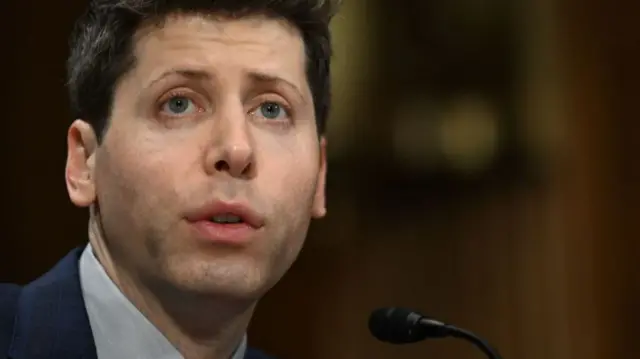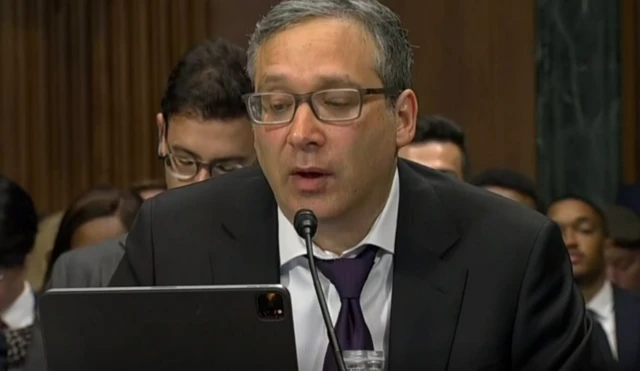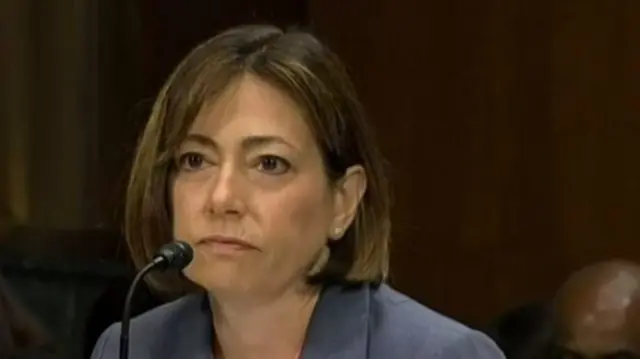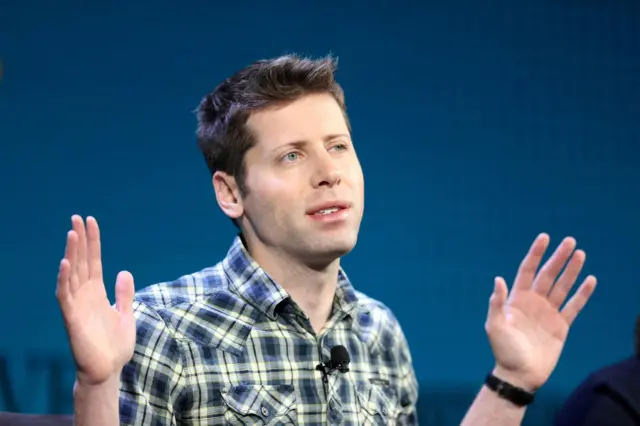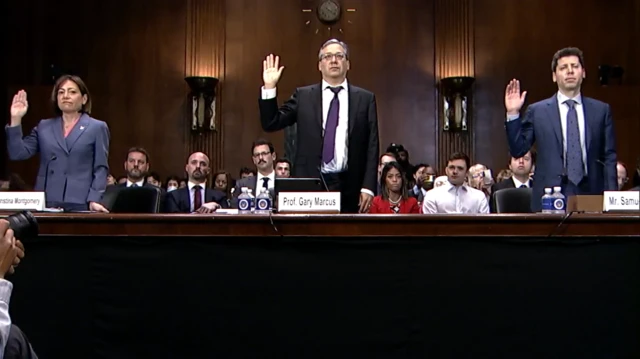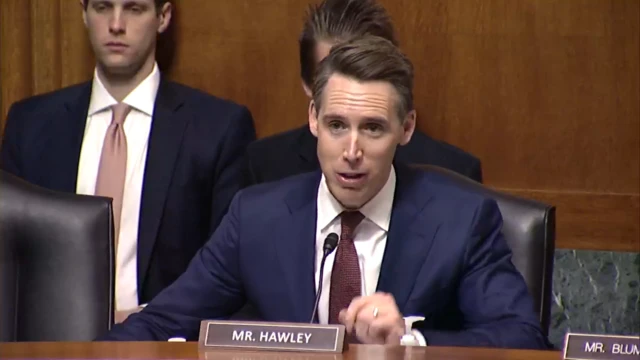WATCH: Altman says 'AI has potential to find cure for cancer'published at 16:14 BST 16 May 2023
In addition to focusing on the threats, the witnesses are making sure to focus on the good that can be done for society with technological advancements in AI.
OpenAI founder Sam Altman hopes AI can "address some of humanities biggest challenges".
